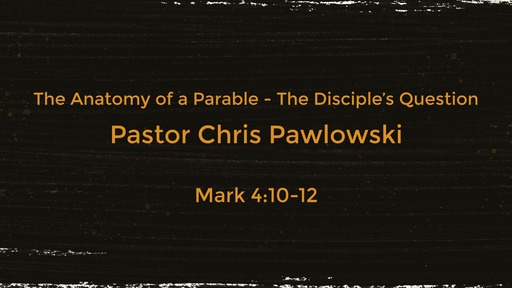The Anatomy of a Parable - The Disciple's Question

Introduction
The Insiders
372Who is to have authority in the matter of gracious adoption? The children of wrath? Surely not; and yet all men are such! No, it stands to reason, to common sense, that none but the parent can have the discretion to adopt.
The Outsiders
387Some say, “It is unfair for God to choose some and leave others.”
Now, I will ask you one question: Is there any of you here who wishes to be holy, who wishes to be regenerate, to leave off sin and walk in holiness?
“Yes, there is,” says someone. “I do!”
Then God has elected you.
But another says, “No, I don’t want to be holy; I don’t want to give up my lusts and my vices.”
Why should you grumble, then, that God has not elected you? For if you were elected, you would not like it, according to your own confession.
What’s the Point?
381Our Savior has bidden us to preach the gospel to every creature (Mark 16:15). He has not said, “Preach it only to the elect,” and though that might seem to be the most logical thing for us to do, yet since he has not been pleased to stamp the elect in their foreheads or put any distinctive mark upon them, it would be an impossible task for us to perform. When we preach the gospel to every creature, the gospel makes its own division, and Christ’s sheep hear his voice, and follow him.
